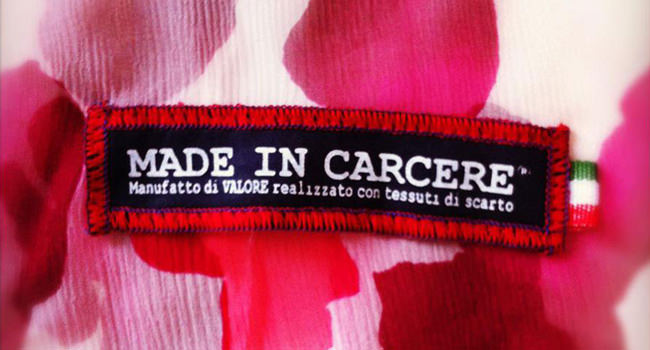A future to weave (together)
Give a second chance to female inmates. How? Have them make their exclusive creations with fabric provided by the partners of “Made in Carcere” (Made in Prison), a non-profit cooperative that has found a new travel companion: Schmid

Made in Carcere is a non-profit cooperative that since 2007 is involved in creating a sustainable development model based on concrete forms of social cohesion. Its objective is to offer a new chance to female inmates, enabling them to regain personal dignity through work.
The means of this rehabilitation is work, and more precisely, the handmade production of fabric bags and accessories MADE IN CARCERE® – FASHION AND PACKAGE, created with material provided by a network of companies committed to the project. A second life that involves people and objects. Which, in both cases, generates surprising results.
A partnership based on values
It is a project that Schmid believes in, offering its support and providing its own fabrics to Made in Carcere. They will be used by female inmates in the prisons of Lecce and Trani, who will make a collection of bags and accessories that will be sold under the “Made in Carcere” brand. «We were immediately in sync with the philosophy and values of this project,” said Schmid CEO Paolo Ciccarelli. “It’s a very efficient model of social inclusion, which we share and have embraced enthusiastically, hoping that this collaboration will last».
Towards a sustainable future
Luciana Delle Donne, founder and indefatigable promoter of Made in Carcere, explains the partnership, unveiling the foundations and values on which rest the relationship between the non-profit organisation and Schmid. «We believe that the future is in the hands of companies with strong ethical values, and the union of non-profit entities and private companies can lead to great results. The sustainability and social values of a company are increasingly elements of development and differentiation. We hope that the relationship between Schmid and Made in Carcere will not be limited to the supply of fabric, but will grow over time, demonstrating the possibility of building a better world and future thanks to social inclusion and the reinsertion through labour of people on the fringes of society. Only this way, we can produce a form of wealth which is not limited to profit but includes the well-being of the environment and people».
